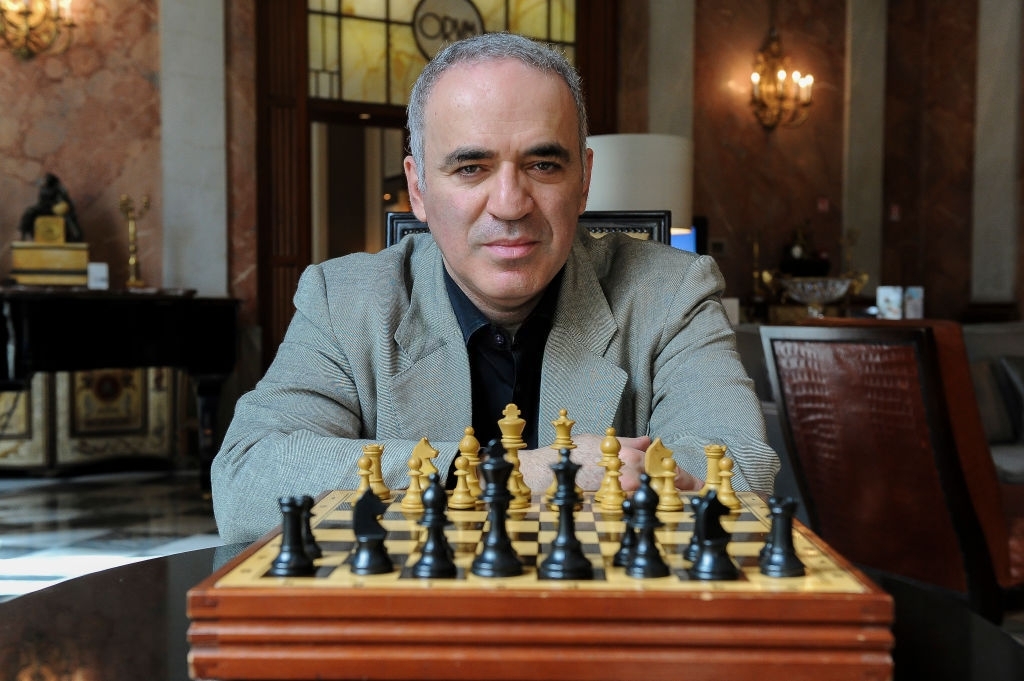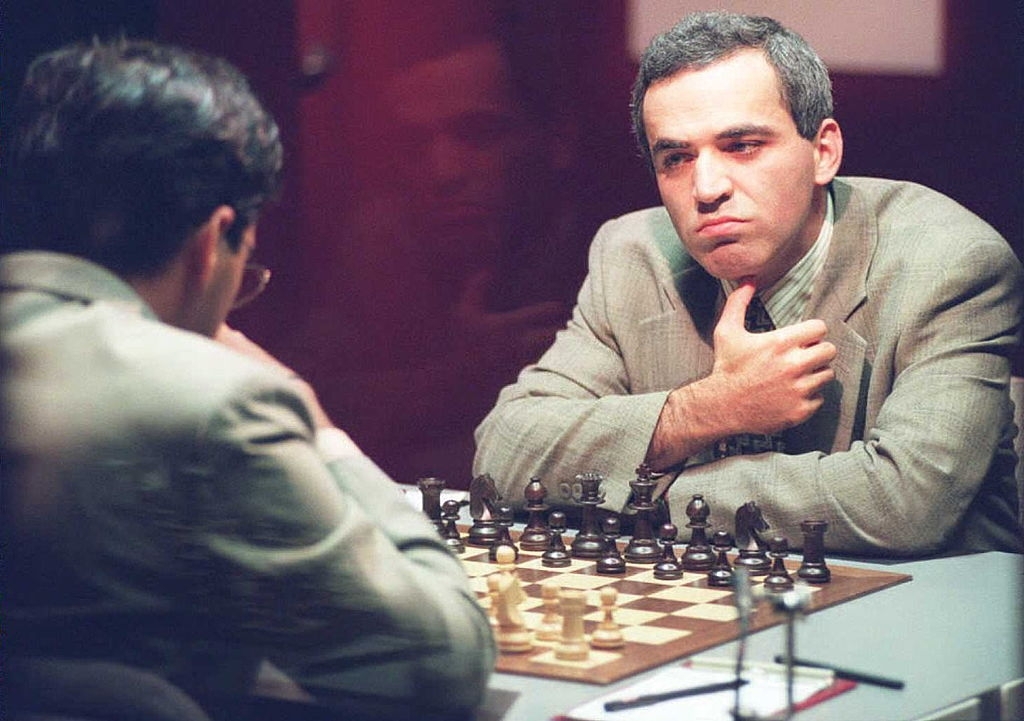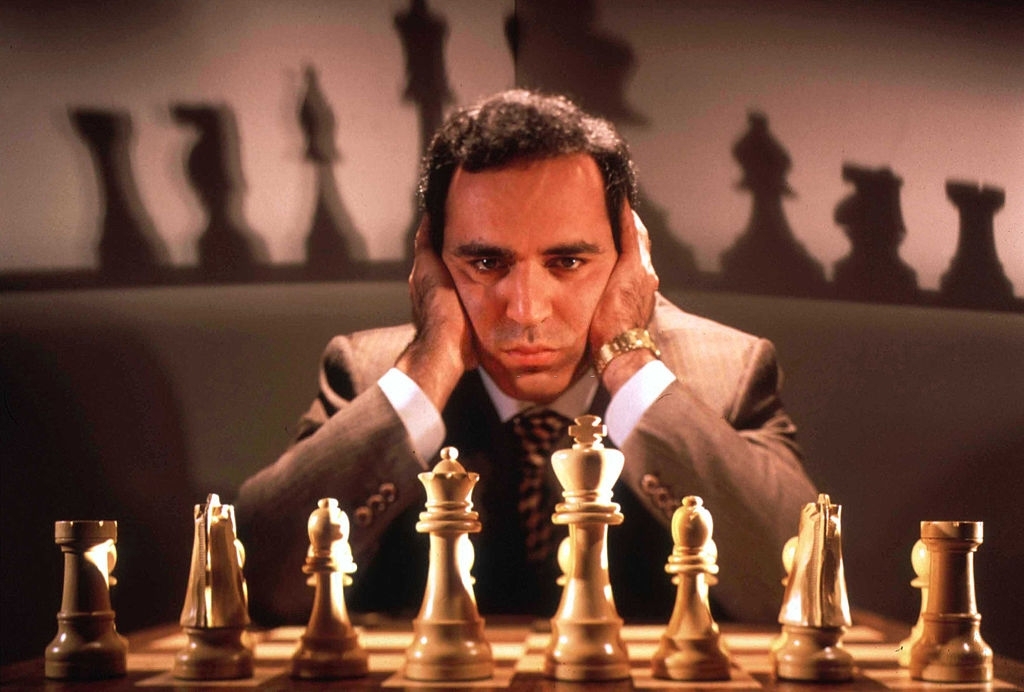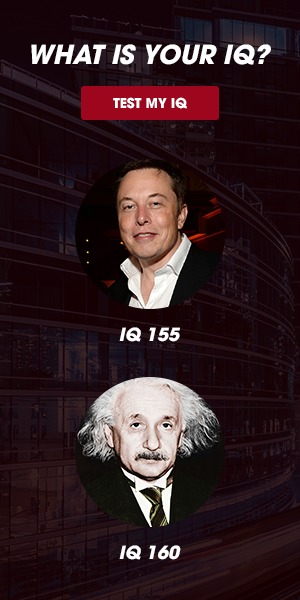What does an iq of 194 mean?
Some main characteristics of people with IQ 194: they will usually focus only on what they want and almost ignore what is happening around, always want to be answered many questions about issues such as science, math ...
I. What does IQ 194 mean?
Some main characteristics of people with IQ 194:
- IQ 194 will show through extraordinary concentration: they will usually focus only on what they want and almost ignore what is happening around.
- People with 194 IQ love to ask questions: They always want to be answered many questions about issues such as science, math ...
- IQ 194 emphasizes logic: They think that everything in this world has logic and needs to think to understand the problem.
<< See more >> What does an iq of 190 mean?
II. Chess grandmaster - Garry Kasparov with 194 IQ score

Garry Kasparov with 194 IQ score
His talent for chess made him famous not only in Russia (formerly the Soviet Union) but also worldwide. Moreover, Garry Kasparov is also quite famous for his political activities, the most prominent being against the IBM Deep Blue computer or the political activities that support the opposition in Russia under him. Vladimir Putin is Prime Minister.
Experts have measured Garry Kasparov's IQ of 194, one of the highest ever measured. He is currently retired and serves on the board of the Human Rights Foundation.
1. Garry Kasparov's style of chess
Magnus Carlsen - a pupil of Kasparov, which he trained from 2009 - 2010, shares the following: “I have never seen someone feel that way about the dynamics of complex positions. Kasparov is known for his extensive preparation and active play in the opening match.
2. Chess competition career
Chess competition career by Garry Kasparov:
- Start a career from the age of 10, Kasparov attended the chess school of former world champion Mihail Botvinnik. At the age of 15, he became Botvinnik's assistant.
- In 1975, during a chess performance with many of the world chess world champion Anatoly Karpov at Leningrad's Palace, Kasparov made a tie with the Grand Master.
- In 1976, Kasparov won the Soviet Chess Championship.
- In 1978, Kasparov won the Sokolsky Memorial Chess Prize in Minsk and received the title of Grandmaster of the sport of chess.
- In 1980, he became the youngest grandmaster in the world, won the World Chess Teen Championship in Dortmund and graduated high school with a Gold Medal.
- In 1981, he won the Soviet Championship in chess. Kasparov became the youngest chess champion of the Soviet Union.
- In 1984, after eliminating other players, Kasparov became the challenger to defending world champion Anatoly Karpov. The final match between Karpov and Kasparov could not be ended because neither side won 6 games before the rules. After 48 games, the championship match was forced to be canceled in order to re-play under the new rules.
3. 20 years of world chess dominance (1985 - 2005)
However, in the chess world he was still considered the number 1 in the world until he lost to Kramnik in 2000. In fact, Garry Kasparov held the position of champion almost continuously from 1985 until He retired in 2005. The highest Elo rating he has is 2851 and sets a record of 15 victories.
4. The famous computer confrontation
In 1989, Kasparov struggled to overcome a computer rival. Seven years later, the company introduced its line of chess machines Deep Blue. This is considered a sensitive computer like humans and a thousand times more intelligent than human intelligence.
Deep Blue has a database system that contains all the moves of the great generals in the world in the past 100 years. From there, it can produce hundreds of thousands of different deployment options per second. Deep Blue - Garry Kasparov had a fierce match with each other after that. Kasparov only lost game 1 and won 2 games straight after that. He discovered the law and solved Deep Blue that it had to give up before meaningless moves.
A year later, IBM returned to the challenge and their product was Deeper Blue. In 2003, IBM launched Deep Junior, a computer that could plan 3 million moves per second. Located in Deep Junior's database is everything that humans know about chess. These are normal to super games. Results Deep Junior and Kasparov drew 3-3.
5. Garry Kasparov after retirement
One of the typical events of Kasparov after his retirement is working as a coach for the current world chess champion. Magnus Carlsen and Garry Kasparov had the fate of being teachers and students from 2009 to 2010. During the first period, the cooperation between the two was kept a secret until September 2009.
Under Kasparov's guidance, Carlsen became the youngest person to achieve a higher FIDE rating of 2,800 in October 2009. From there it helped him rise from number 4 to number 1 in the world. However, by March 2010, Magnus Carlsen stopped cooperating with Kasparov. In January 2011, Kasparov began training US General Hikaru Nakamura. In 2014, Garry Kasparov ran for the presidency of FIDE but failed.
Kasparov sets up a fund under his own name to help help children around the world. This helps to discover and train chess talent. Because according to him, talents are everywhere in the world and need to create conditions to help them have the opportunity to develop themselves.
6. Achievements Garry Kasparov achieved
In addition, Garry Kasparov also won 11 chess Oscars over the years: 1982, 1983, 1985, 1986, 1987, 1988, 1995, 1996, 1999, 2001 and 2002.
Kasparov holds the longest record as the number 1 ranked player in the world from 1986 - 2005. In addition, Kasparov holds the record for most consecutive professional league wins.

Garry Kasparov has a glorious career in chess
Here are his achievements:
- Frunze 1981, USSR Championship, 12½ / 17, tied for 1st;
- Bugojno 1982, 9½ / 13, 1
- Moscow 1982, Interzonal, 10/13, 1;
- Nikšić 1983, 11/14, 1;
- Brussels OHRA 1986, 7½ / 10, 1;
- Brussels SWIFT 1987, 8½ / 11, tie for 1st;
- Amsterdam Optiebeurs 1988, December 9, 1;
- Bell Tower (World Cup) 1988, 11½ / 15, 1st;
- Moscow 1988, USSR Championship, 11½ / 17, tied for 1st;
- Tuaavík (World Cup) 1988, 11/17, 1st;
- Barcelona (World Cup) 1989, 11/16, drew for 1st;
- Skellefteå (World Cup) 1989, 9½ / 15, drew for 1st;
- Tilburg 1989, 12/14, 1;
- Belgrade (Investments) 1989, 9½ / 11, 1;
- Linares 1990, November 8, 1.
Maybe you are interested
What does an iq of 200 mean?
What does an iq of 194 mean?
what does an iq of 190 mean?
What does an iq of 116 mean?
What does an IQ of 112 mean?
what does an IQ of 108 mean




